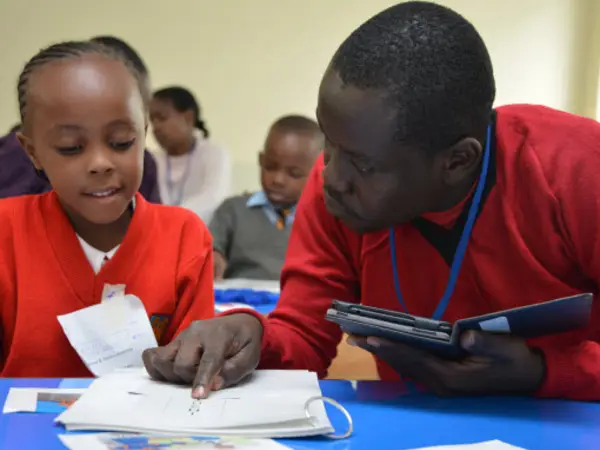A robust scientific ecosystem is required to deliver generalizable and impactful data that will address our toughest challenges. By making a commitment to the Open Science Initiative, RTI is answering the call to increase cooperative efforts among researchers, partners, participants, and the public to enhance rigor, experimentation, and, ultimately, solutions. Increasing transparency and accessibility for all can foster growth and discovery—which is achieved by opening doors for investigators across the research community. Whether we are addressing matters of public health or studying the environmental impact of greenhouse gas emissions, it takes a broad team of interdisciplinary experts to fuel the power of collaboration, improve access to critical scientific information, and facilitate the research continuum.

Open Science: By the numbers
RTI has made progress towards our Open Science goals with substantial number of Open Access publications, broad uptake of ORCID iDs, and through collaborative innovation.
0 +
Number of Open Access research outputs
0 %
Adoption of ORCID iDs by RTI researchers
0 +
RTI-led collaborations
0 %
Open Access 2024 research outputs
RTI's Commitment to Open Science
RTI is committed to sharing research and the advancement of accessible science. We celebrate Open Science by highlighting opportunities and collaborations that demonstrate these commitments.
- RTI encourages research staff to share knowledge through Open Access channels, such as Open Access journals, RTI Press, and preprint repositories, whenever possible, in line with RTI’s mission. RTI supports Open Access as a means of making science more available, by increasing the discoverability, reach, and impact of RTI’s research.
- Since 2007, RTI Press has shared research through peer-reviewed, Open Access publications. We publish on a broad range of topics reflecting RTI’s multidisciplinary research, expertise in social and laboratory sciences, and extensive international activities. Our publications inform national and international research, scientific discussions, and policy debates. RTI International supports RTI Press as a means of sharing research and practical knowledge to improve the human condition.
- RTI data scientists have created a range of open source tools that make it easier to work with large data sets and address the needs of our partners. Examples of these tools - such as gobbli, SMART, and Harness-Vue - are detailed in the Open Source Tools section below.
- RTI researchers work to respect diverse cultures throughout the research life cycle, for example, by reflecting cultural norms of communication in survey research.
- RTI Press is a signatory to the SDG Publishers Compact. We publish works that help inform, develop, and inspire action to achieve the SDGs by 2030.
- RTI is invested in promoting FAIR data principles to meet the needs and challenges for modernizing and securing data systems.
- In line with the National Science and Technology Council's guidance, RTI is integrating the use of digital persistent identifiers throughout the research life cycle. In particular, RTI has successfully adopted and integrated ORCID iDs, which are researcher-level PIDS, to link scientists and their accomplishments.
RTI researchers collaborate with a range of clients on efforts to promote open science, a number of which are highlighted in the gallery below.
- In 2023, NIH adopted a new policy to promote the sharing of scientific data. As part of the NIH HEAL Data Stewardship Group, RTI ensures that NIH HEAL data are Findable, Accessible, Interoperable, and Reusable (FAIR) by developing processes for data harmonization, data storage, metadata collection, and sharing within a federated data ecosystem.
- Since 2010, improving early grade reading has been a top priority for RTI. In support of this work and to improve upon paper forms of assessment, RTI developed a mobile assessment and coaching tool we dubbed Tangerine. Open source for all users, Tangerine is a first-of-its-kind software application optimized for offline data collection on low-cost Android tablets. Originally designed to record data from early grade reading and mathematics assessments and to enhance coaching feedback for teachers, students, and school administrators, the Tangerine app has been adopted in other sectors, such as health.
- RTI has adopted DMPTool for researchers to prepare data management and sharing plans that meet funders' expectations and facilitate open data. Despite clear data sharing benefits and expectations, hesitancy is common in many scientific research domains. A 2025 publication highlights work underway in the NIH HEAL Data Ecosystem to promote a data sharing culture.
- RTI Fellows and our Scientific Stature Services team are advancing Open Science at RTI through a series of roundtables to address topics especially relevant to our scientists. The purpose is to introduce these topics and prompt researchers to explore the relevant details for their own fields and funders. In 2022-23, topics have included protocol papers, data management and sharing plans, and Open Access publishing.
- RTI researchers embrace reproducible research as good stewards of research funding and as providers of credible information for policy decision-making across many areas of public concern. For example, the authors of the highly collaborative publication Monthly excess mortality across counties in the United States during the COVID-19 pandemic, March 2020 to February 2022 host a living repository of data and code that enable replication of the results in the paper.
Open Science Innovations

ORCID US Community Award
RTI was recognized in 2023 for collaboration with multiple partners to encourage ORCID iDs in research activity reporting, publishing, funding proposals, and internally funded research projects. These efforts have resulted in a substantial increase in ORCID iD use by RTI researchers and the integration of ORCID iDs in RTI's institutional repository.




















